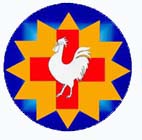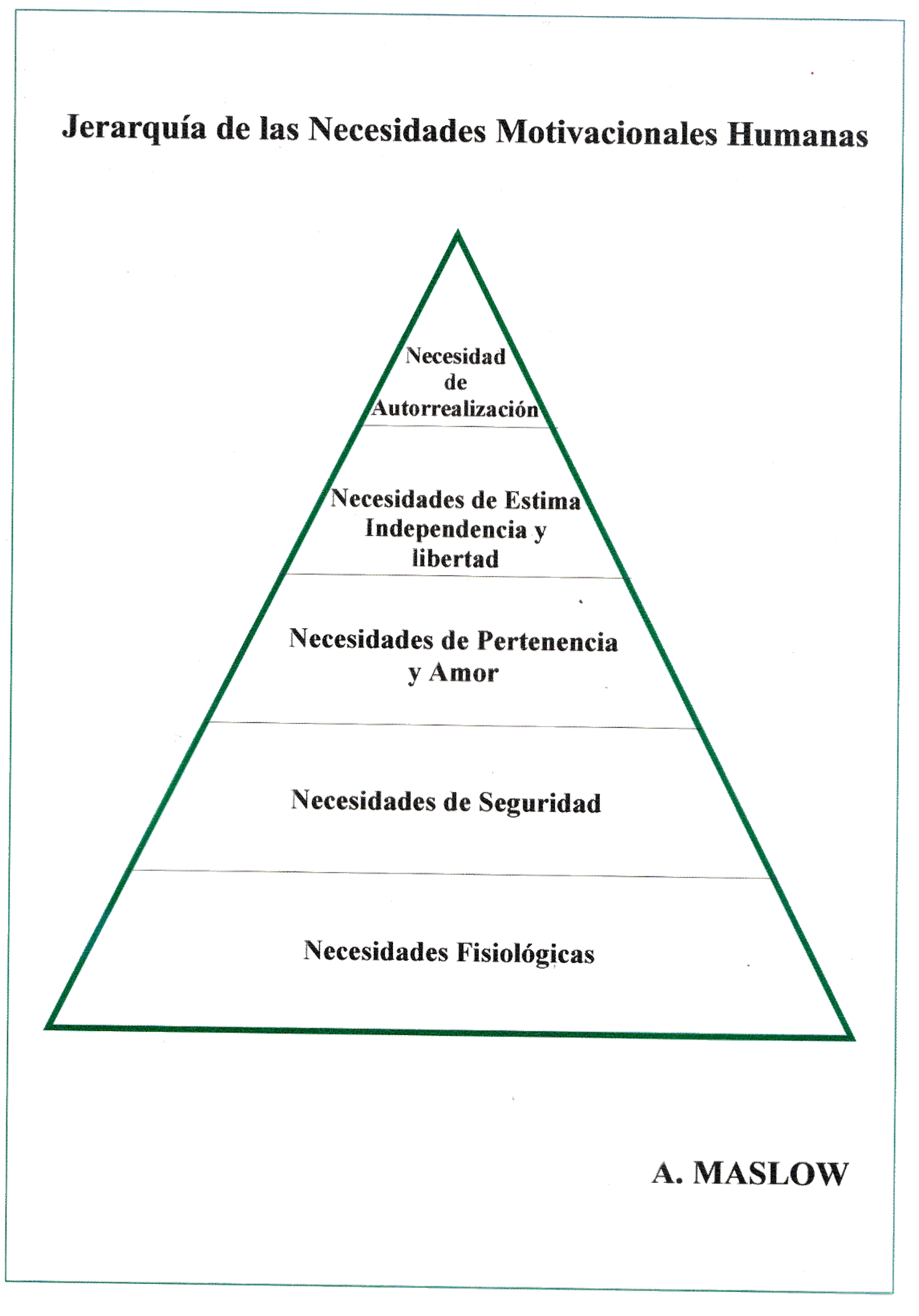DOCTOR OF BUSINESS ADMINISTRATION POLICY SECTION 1 – PURPOSE
2012 AÑO DE HOMENAJE AL DOCTOR D MANUELCONTRATOS PREDOCTORALES DE FORMACIÓN EN INVESTIGACIÓN MEMORIA
NOMBRE ROBERTO MARTÍNEZ SÁNCHEZ DOCTORADO EN CIENCIAS
(APARTADO MEMORIA JUSTIFICATIVA) 521 ORGANIZACIÓN 521SEGUIMIENTO DEL DOCTORANDO
(NAME AND SURNAME) DOCTORAL STUDENT OF (NAME OF FACULTY
0 REPORT ON ADVERSE DRUG REACTION 1 REPORTER (DOCTOR
DOCTOR OF BUSINESS ADMINISTRATION POLICY
DOCTOR OF BUSINESS ADMINISTRATION POLICY
Section 1 – Purpose and Content
(1) This document outlines the specific course requirements of the Doctor of Business Administration (DBA) at the University of Western Sydney (UWS). It should be read in conjunction with the UWS Professional Doctorate Policy and UWS policies relating to Higher Degrees by Research and specific College requirements and guidelines for candidates.
Section 2 – Definitions
(2) Nil.
Section 3 – Policy Statement
Part A – Aims of the Course
(3) The UWS DBA program aims to produce business graduates who are capable of conducting research independently at the highest level of originality and quality. The doctorate is recognition of successful research experience of international standard in the discipline. A doctoral candidate should uncover new knowledge either by the discovery of new facts, the formulation of theories, the innovative re-interpretation of known data and established ideas, or the application of established knowledge in new contexts.
(4) In addition, the DBA provides extended and advanced training in a professional field in Business where projects and investigations are more applied in nature and more obviously oriented to professional practice. As a professional doctorate the DBA is designed to equip candidates to be critical consumers of research.
Part B – Background
(5) The DBA program at UWS is a program of advanced research embedded in professional practice in business. Work conducted by the candidates as part of the DBA is often based on a partnership between the University and the business community and aims to provide an integrated set of experiences for candidates. The DBA degree is a well-established professional qualification that is widely accepted internationally. Over the past decade or so, the degree has become more widely acknowledged as an acceptable alternative to more traditional doctoral studies for professional managers within Australia and many Asian countries
Consistent with other Australian DBA programs, the DBA has a first year program of coursework units to strengthen the ability of professionals to undertake advanced research embedded in professional practice.
The DBA program, comprises a one-third coursework component and two-thirds thesis component, by requiring candidates to complete:
Four (4) research methods related coursework subjects that include the nature of research investigation (Philosophical Foundations of Business Research), literature review and criticism (Critical Literature Review); examination of a variety of qualitative and quantitative research methods (Research Skills), and a Thesis Proposal unit;
A thesis that makes a distinct contribution to the improvement of professional knowledge, policy or practice in selected business disciplines.
(6) The overall aim of the program is to equip the senior manager, management consultant or academic who is facing substantial challenges in an environment of innovation and rapid change, with the skills and knowledge to be able to use and apply current research methods in the investigation and resolution of organizationally based problems. The specific objectives of the program are described in terms of knowledge, behaviors and skills that the candidates will have on completion of the program:
thorough knowledge of the literature in at least one specialized field of Business;
the ability to analyze, criticize and specify the shortcomings of the literature in their chosen area;
an understanding of the range of research methods available for organizationally based research and the ability to critically select among them; and
the ability to present and defend a substantial piece of original research that makes a distinct contribution to the improvement of professional practice or policy in the field of Business.
The proposed research topic-based approach enables the candidate to engage in a much more structured process of doctoral level endeavor, ensuring that the product is a focused, coherent body of work underpinned by a thorough appreciation of the ontological and epistemological issues germane to the highest quality research. Indeed, it is an approach that arguably produces graduates with a significantly enhanced research skill set over other alternative models.
Part C – Areas of Study
(7) DBA candidates can select from a wide range of research topics in Business disciplines including Accounting, Business Systems, Economics, Finance, Law, Management, and Marketing.
Part D – Specific Course Requirements of the DBA
(8) The DBA is an intensive program structured as one-third coursework and two-thirds research. It is specifically designed to maximize learning and develop a comprehensive skills-base prior to undertaking the required thesis. The thesis comprises a comprehensive thesis-style research project undertaken by each candidate on an individual basis. It requires a minimum of two years fulltime equivalent to complete under the close guidance of a panel of academic supervisors.
The proposed structure of the DBA is based on 240 credit points, comprising four (4) coursework subjects, each weighted as 20 credit points, and the thesis, weighted as 160 credit points. The total credit points (240) is therefore one-third coursework (80 credit points) and two-thirds thesis (160 credit points).
The four coursework units must be completed before the candidate enrols in the thesis unit.
The coursework component progresses from examination of the broader aspects of Business research to a focus on the specific research skills required to successfully conceive, conduct and report on a significant research topic. For each coursework subject, candidates will be required to attend 40 hours of tuition in addition to completing a substantial amount of research to prepare for classes, assignments, seminar presentations, and examinations. Assessment will be based on a combination of individual assignments and examinations. Academic standards will be at doctoral level and candidates are required to obtain a pass grade in each unit before progression through the coursework. Only on satisfactory completion of all coursework units can candidates progress to the thesis stage. Each of the course units is summarised in Attachment 1 to this paper, indicating the aim and objectives for each unit, together with the topics, assessment mechanisms and a sample of the reference material that will be drawn on for each unit.
(9) The DBA may be completed over 3 years of full time study and research, or the part-time equivalent. The minimum period of candidature is 3 years full-time, or the part-time equivalent and the maximum period of candidature is 4 years full-time, or the part-time equivalent. Coursework units will be presented one per term over four consecutive terms for full-time candidates; and part-time candidates may spread coursework subjects over two years. All candidates must commence the degree with the subject ‘Philosophical Foundations of Business Research’ and all four (4) coursework subjects must be completed before the thesis is commenced. The standard sequence for full and part-time candidates is summarized as:
-
Philosophical Foundations of Business Research
Critical Literature Review
Research Skills
Thesis Proposal and Ethics
Thesis
The coursework units are designed to complement the development of the thesis proposal and so will not unnecessarily impact on the length of time available for the candidates to complete the data collection and write up of the thesis.
Coursework Outline
1. Philosophical Foundations of Business Research
This course aims to develop an understanding of the theoretical traditions in management research, the philosophy of science that informs research and the methodological approaches in management research. Traditional quantitative research methods used in the natural or physical sciences are critically evaluated. Their suitability for research in the social sciences, such as management, is assessed. The assumptions behind two scientific paradigms are discussed. The
two major scientific paradigms i.e. hypothetico-deductive, quantitative research and inductive, hypothesis-generating, qualitative research, are compared in relation to their research utility.
At the completion of the program candidates will be able to explain the philosophical and practical differences of the major research paradigms; understand and explain what constitutes a theoretical contribution; explain the characteristics of doctoral study and scholarly research in making a contribution to professional business and management practice and theory; understand and explain the different methodological approaches in management research and appreciate the ethical issues involved in conducting management research.
2. Critical Literature Review
The aim of this course is to develop skills in applying rigorous analysis and critical assessment to research-based literature in general, through an examination of literature in a particular field. The course is intended to provide candidates with the basic skills needed to do critical analysis of literature while also enabling them to gain more familiarity with theories, issues, and problems in a particular research area. Literature will be analysed through a balanced and constructive critique of its strengths and weaknesses, providing suggestions for how the work might have been improved. Elements to be examined will include critical analyses of the research problem and research questions; the adequacy of the literature review; the theoretical framework, philosophical underpinnings and background assumptions; the epistemology, research design and methodology; the quality of discussion and interpretation and the relevance of the conclusions for management practice. Examination that is more detailed will partly depend on the focus of the work in question, for example, whether it uses quantitative or qualitative methods, and/or a
positivist or interpretivist epistemology.
3. Research Skills
This is an advanced program exploring the application of different analytical methods for both deductive (quantitative) and inductive (qualitative) paradigms. Using field based data candidates will cover topics in advanced multivariate analysis (e.g. causal path and structural equation modelling, network analysis, cluster analysis etc.) with an emphasis on the critical evaluation and appropriate use of the analytic tools. Candidates will be introduced to the computer-based analysis of qualitative data using tools such as Leximancer. Their advantages and shortcomings are critically evaluated, as is their place in the suite of analytic tools available to the business
researcher. In contrast to more traditional views the complementarity of the quantitative and qualitative approaches are stressed. These aspects of the two paradigms are illustrated by case material involving large sample survey data and transcripts of qualitative reports.
4. Thesis Proposal and Ethics
The overall aim of this course is to prepare candidates to make a research proposal that forms the basis of their thesis. In order to achieve this the program will give candidates the ability to define and describe a problem of business and management that can be researched as the basis of proposed solutions. Candidates will then be shown how this can be translated into an appropriate research question. Following from this candidates will be taken through the process of presenting a case as to the importance of their research; locating the research question within the body of research-based literature; providing scope and boundaries to the research through definition of concepts; describing the methodology and methods to be used in addressing the research question; setting their research activities within a sensible timeframe for completion and finally
writing a well structured and articulated research proposal. As part of the latter candidates will prepare an ethics protocol based on the principle of informed consent.
(10) Supervision of Thesis: Candidates will be assigned to a supervisory panel comprising of a principal supervisor, and one or more co-supervisors, with expertise in the nominated discipline. The co-supervisor(s) may be external to the university and from a professional setting with practical expertise in a specific discipline. Based on the work completed in the coursework, the candidate will complete the Confirmation of Candidature process. If accepted, the candidate will work on the thesis in close consultation with the supervisory panel. The thesis will be presented for examination according to UWS regulations.
Admission
(11) Applicants for admission to the DBA will be assessed in accordance with the criteria specified in the professional doctorate rules. Candidates will need to submit evidence of academic or professional attainment that demonstrates a capacity for research.
Progress Reports
(12) During the coursework phase of the degree, progress will be measured at the completion of each coursework unit (every 3-6 months, depending on the part/full-time status of the candidate). Candidates are required to obtain a pass grade in each and every unit before they enter the thesis stage of the program.
1 DOCTORADO EN CIENCIA Y TECNOLOGIA EVALUADO Y ACREDITADO
10 DIÁLOGO DE LA POESÍA FLOR Y CANTO1 DOCTOR
10 JOSEFINA LUDMER SEMINARIO DOCTORADO 2011 7 SETIEMBRE23 NOVIEMBRE
Tags: administration policy, business administration, policy, doctor, section, administration, business, purpose
- APPENDIX E GUIDELINES FOR MANAGERS DEALING WITH ALCOHOL
- LISTADO DE LAS ESPECIES DETECTADAS DURANTE EL DESCENSO POR
- 5 ANNA CICHOPEKGAJRAJ CURRICULUM VITAE ANNA CICHOPEKGAJRAJ
- 21 TRAVNJA 2008 GODINE SLUŽBENI GLASNIK GRADA HVARA BROJ
- REGULAMIN KONKURSU ”SPOŁECZNIK ROKU ” „WOLONTARIUSZ ROKU ” ORGANIZOWANEGO
- (ATTACHMENT 1) LAKEVIEW HEALTH CENTER VOLUNTEER INFORMATION SHEET NAME
- CREACIÓ I FUNCIONS DE LA UNITAT CENTRAL DE MENORS
- VRTEC ČRNOMELJ KAKOVOSTNE ZAHTEVE SPLOŠNE IN DODATNE ZAHTEVE PREHRAMBENEGA
- INDIVIDUAL USER MEMBERSHIP FORM PLEASE RETURN FORM ALONG WITH
- 226 BUHALTERINĖ APSKAITA VILNIAUS KOLEGIJA VERSLO VADYBOS FAKULTETAS BUHALTERINĖS
- THE UTILITY OF GIS ELEMENTS IN WATER MONITORING ACTIVITY
- WYKAZ OBOWIĄZUJĄCYCH MIEJSCOWYCH PLANÓW ZAGOSPODAROWANIA PRZESTRZENNEGO W GMINIE TOSZEK
- CROSSMATCHING MULTIPLE SPATIAL OBSERVATIONS AND DEALING WITH MISSING DATA
- THE SECRETARY THE FRIENDS OF ST PAUL’S CATHEDRAL THE
- LA GESTIÓN DE STOCKS EL MODELO DETERMINISTA EN EL
- VADODARA (R &B) CIRCLE VADODARA STATEMENT SHOWING THE STATE
- 5 LEIEAVTALE 1 PARTENE UTLEIER UTLEIER ORGANISASJONSNUMMER XXXXXXXXX ADRESSE
- R EGION NORRBOTTEN LAPONIA HÄLSOCENTRAL VACCINATIONSJOURNAL FÖR UTLANDSRESA SID
- ÖN DENETİM RAPORU DENETLEME İLE İLGILI BILGILER GÖREV ONAYI
- U NITED NATIONS NATIONS UNIES DIVISION DE L’ANALYSE DES
- EN EL MUNICIPIO DE DEPARTAMENTO DE A
- QUÍMICA 2º BACHILLERATO IES LA MAGDALENA AVILÉS ASTURIAS MODELOS
- SALA DE CASACIÓN LABORAL CARLOS ERNESTO MOLINA MONSALVE MAGISTRADO
- CAPÍTULO XVI CASOS CLÍNICOS EN EL LABORATORIO DE HEMATOLOGÍA
- ATTENDANCE DUES GUIDANCE FOR PROPRIETORS USES OF ATTENDANCE DUES
- EANNEX 4 QUALITY MAPPING EXERCISE PROCESS AND DOCUMENTATION
- ENVIRONMENTAL BEST MANAGEMENT PRACTICE BMP NO 203 TAILING
- HÄR KOMMER ANTECKNINGAR FRÅN MÖTET 110314 NÄRVARANDE MARIA (LINSAN
- UCHWAŁA XXXVI ZJAZDU ZHP Z DNIA 6 GRUDNIA 2009
- OLÁ PESSOAL VAMOS CONTINUAR COM A PREPARAÇÃO DO
WARSZAWA DN……………………………… ……………………………… URZĄD LOTNICTWA CYWILNEGO INSPEKTORAT PERSONELU LOTNICZEGO
 VKLJUČUJOČ IN VAREN PROSTOR PROSTOR ZA SREČO IN SMISEL
VKLJUČUJOČ IN VAREN PROSTOR PROSTOR ZA SREČO IN SMISEL……………………………………………… ………………… ( WNIOSKODAWCA – WŁAŚCIWY ZARZĄDCA DROGI )
CHOICE STUDENT PRESENTATION CRITIQUE NAMEDATEGRADE TOPIC DRESS WAS THE
DRAFT 11817 AGENDA TOPICS AND TIME ARE SUBJECT TO
PEACE INTERVENTIONS AND PROSPECTS FOR RECONCILIATION IN THE RIFT
 M INISTERIO DEL INTERIOR DIRECCION NACIONAL DE SANIDAD POLICIAL
M INISTERIO DEL INTERIOR DIRECCION NACIONAL DE SANIDAD POLICIAL PROGRAMA FUNDACIÓN SEPI – INSTITUTO DE CRÉDITO OFICIAL 2012
PROGRAMA FUNDACIÓN SEPI – INSTITUTO DE CRÉDITO OFICIAL 2012ARTÍCULO 4° (ENUMERACIÓN DE CONDICIONES) PARA PARTICIPAR DEL PROGRAMA DE INCENTIVOS A LOS DOCENTESINVESTIGADORES
НАИМЕНОВАНИЕ ЗАКАЗЧИКА АДРЕС ТЕЛФАКС EMAIL ОТДЕЛ НАУЧНОИССЛЕДОВАТЕЛЬСКИХ ЭКСПЕРТИЗ НИИ
 ESCUELA DE FORMACIÓN PERMANENTE DE MORBILIDAD DIFERENCIAL III CURSO
ESCUELA DE FORMACIÓN PERMANENTE DE MORBILIDAD DIFERENCIAL III CURSO TALLER ACERCA DE LAS NECESIDADES INTRODUCCIÓN VARIOS AUTORES COINCIDEN
TALLER ACERCA DE LAS NECESIDADES INTRODUCCIÓN VARIOS AUTORES COINCIDENPREFEITURA INVESTIU R 815 MILHÕES EM OBRAS DE DRENAGEM
UNICODE SYMBOL REFERENCE MICROSOFT WORD (1) CUT AND PASTE
NOTA PER LA CONSULTAZIONE DELLE TABELLE LE ALLEGATE TABELLE
WTL452 PÁGINA 0 ORGANIZACIÓN MUNDIAL DEL COMERCIO WTL452 16
 TÄVLINGSBESTÄMMELSER TRUPPTÄVLINGSBESTÄMMELSER GYMNASTIKFÖRBUNDET ÖVRE MELLANSVERIGE GÄVLEBORGSJAKTEN KLASS
TÄVLINGSBESTÄMMELSER TRUPPTÄVLINGSBESTÄMMELSER GYMNASTIKFÖRBUNDET ÖVRE MELLANSVERIGE GÄVLEBORGSJAKTEN KLASS  NOTA DE PRENSA 03 DE OCTUBRE DE 2009
NOTA DE PRENSA 03 DE OCTUBRE DE 2009 PÁGINA 94 ÁREA MATEMÁTICA – TEXTO SAN MATEO 3º
PÁGINA 94 ÁREA MATEMÁTICA – TEXTO SAN MATEO 3ºCHILE EN CUATRO MOMENTOS NUEVO VOLUMEN DE 1810 LOS